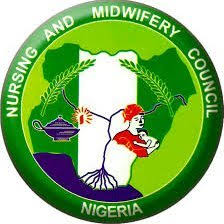The Nigerian Institute of Medical Research (NIMR) has called for increased government funding to support and scale up local research on indigenous diseases.
The appeal was made during NIMR’s inaugural monthly media chat held in the research facility in Lagos, to discuss areas for improvement, as well as the institute’s ongoing research efforts, challenges and future goals.
NIMR Director-General, Prof Oladapo Obafunwa, emphasised the need for a more focused approach to addressing Nigeria’s pressing health concerns, particularly non-communicable diseases (NCDs), and investing in locally developed solutions to improve public health outcomes.
He highlighted that most of the research currently conducted at the institute is funded by international donors often leading to research that may not always benefit Nigeria.
“About 90 per cent of the research going on at the institution is being funded by international donors. We need more local funding to focus on health issues that affect Nigerians. And less of this esoteric research,” he explained.
Obafunwa expressed the need to prioritise funding for research into diabetes, hypertension, heart disease, and chronic renal diseases. He stressed that these conditions, which have become increasingly prevalent in Nigeria, could be better understood and managed through dedicated local research efforts.
“The government and our legislature need to approve money to concentrate on local research on diseases and conditions such as diabetes, heart disease, and its relationship with hypertension and heart attacks,” he said.
He also pointed out the importance of investigating potential genetic predispositions within different regions that might influence the development of these diseases. “Are there identifiable genetic constitutions in any part of the country that favour the development of diabetes and other non-communicable diseases? A lot is said about chronic renal diseases, renal failure, dialysis, and kidney transplant. Is there anything in our water, and food that we need to reduce?” he questioned.
The Director-General highlighted the need to explore the composition of the air in different parts of the country, particularly respiratory conditions such as bronchial asthma.
Obafunwa expressed hopes for future research efforts, particularly in developing vaccines for diseases like Lassa fever and malaria. “I’m hoping that this year, we will concentrate research into the development of vaccines, not only for Lassa fever but for malaria as well,” he said.
He addressed concerns around claims that vaccines could reduce fertility, emphasising the importance of scientific research to debunk these claims. “A lot has been said out there about some of these vaccines causing a reduction in fertility. We probably need to look at these and disprove such claims,” he noted.
Obafunwa also pointed to ongoing research in cancer, particularly in areas such as breast, prostate, and cervical cancers, at NIMR’s Cancer Research Lab. He expressed optimism that, with increased funding, the lab could intensify efforts to explore these conditions further,” he said.
The Director-General also raised concerns about the persistent power supply issues at NIMR, highlighting the serious impact on research integrity. “Imagine a research institute without power. It means that all your research samples that are supposed to be maintained at specific temperatures will go bad within 24 hours of a power outage,” he explained.
Obafunwa detailed the challenges NIMR has faced with the electricity distribution company, including a series of high bills and illegal connections. He said the frustration led them to involve the National Electricity Regulatory Commission (NERC) to address the issue.
However, despite this step, the institute had to seek assistance from foreign donors to offset some of these costs, which have further complicated its research efforts.
Obafunwa expressed hope that NIMR would eventually be able to reduce its dependence on the national grid, exploring alternative solutions such as solar panels and inverters. “We are currently making arrangements, discussing with experts about the possibility of installing solar systems and inverters,” he revealed.
Obafunwa appealed for greater governmental support to enhance Nigeria’s research capabilities, saying that increased local funding would allow NIMR to focus more effectively on solving health issues directly affecting the Nigerian population.
With the right investment, we can take charge of our health challenges and significantly impact the nation’s well-being,” he added.
SOURCE: GUARDIAN NEWSPAPER




